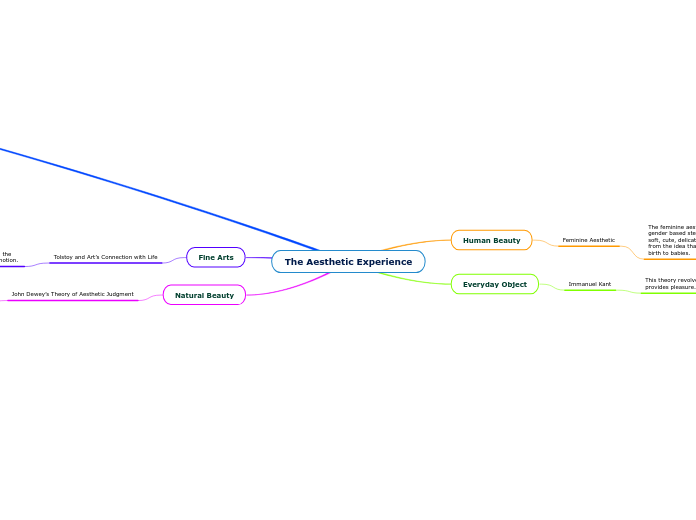によって Samantha beneteau 3年前.
227
The Aesthetic Experience
Exploring various theories of aesthetic experience, the text discusses how judgement and pleasure are intertwined in appreciating art and everyday objects, as noted by Immanuel Kant.

によって Samantha beneteau 3年前.
227

もっと見る
Rain and Waterfalls: When we watch rain fall, or we watch a beautiful waterfall flow, we can't help but to feel calm, and appreciate its beauty. Nature often has that effect on us. It brings out our emotions.
Music: Where is The Love? by The Black Eyed Peas. This song is an example of conveying a message through fine arts. The song conveys a strong sad emotion, and conveys the message of increasing love and peace throughout the world.
Clothes: Everyone has their own sense of style. People find pleasure in finding a clothing piece that they like. People also find pleasure in wearing clothes that fit their style. Kant states that art is subjective, and clothing style is a clear example of this theory.
An example of this would be a woman who is petit, and has baby like features. This woman would look soft and gentle like a baby, connecting her to the feminine aesthetic.